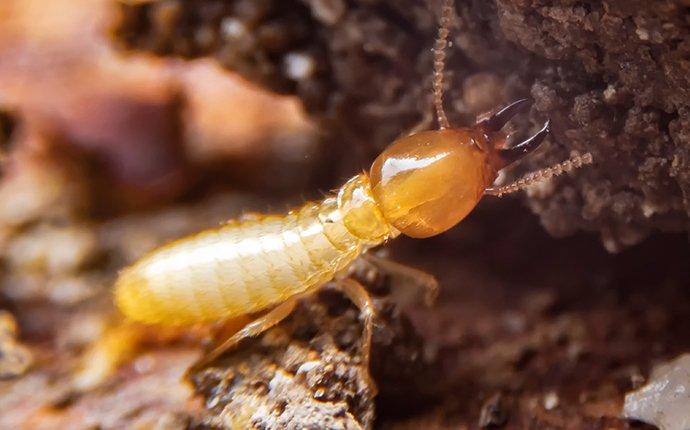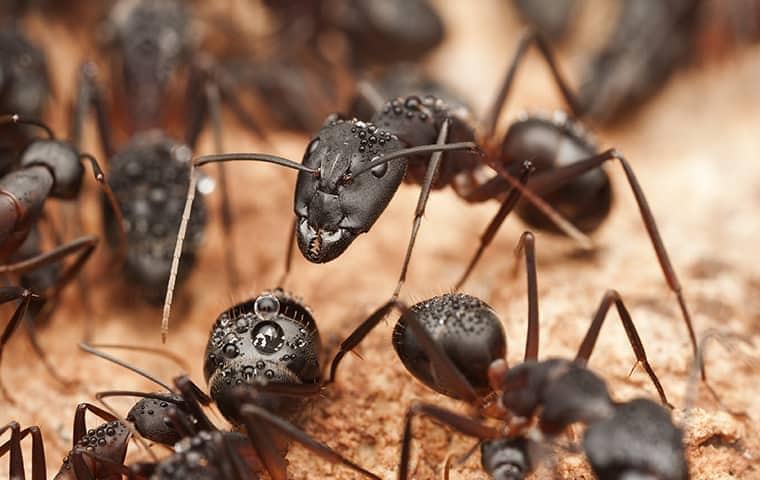Advanced Termite Control: Proven Approaches for Removing Termite Infestations
Advanced Termite Control: Proven Approaches for Removing Termite Infestations
Blog Article
Environmental Impact of Insect Control: Balancing Performance With Sustainability
The ecological effect of pest control is an important problem that requires a fragile balance between achieving performance in taking care of insects and guaranteeing sustainability of our communities. As we strive to shield our plants, homes, and health and wellness from the risks posed by pests, the approaches we use can accidentally hurt the atmosphere. From using damaging chemicals that leak into our soil and water to the unplanned effects on non-target varieties, the effects of conventional insect control practices are far-ranging. Nevertheless, there are arising methods that offer wish for a much more lasting technique to pest administration. These services not just objective to address the immediate parasite issues yet likewise consider the long-term health of our earth.
Unsafe Chemicals in Insect Control
The utilization of hazardous chemicals in parasite control postures considerable ecological and wellness threats that necessitate mindful consideration and mitigation approaches. Pesticides, herbicides, and pesticides are typically made use of to remove parasites, however their extensive application can bring about unintended effects. These chemicals can pollute dirt, water resources, and the air, influencing not only the targeted insects but also valuable pests, wild animals, and humans.

To address these risks, integrated insect management (IPM) techniques are being promoted as a more lasting choice. IPM involves a mix of approaches such as organic control, habitat adjustment, and the targeted use of pesticides as a last hope (ant control apex nc). By embracing an alternative method to pest control, we can decrease the ecological and wellness impacts linked with unsafe chemicals while successfully handling pest populaces
Impact on Non-Target Types
Thinking about the unintentional consequences of bug control approaches, the influence on non-target species is an important aspect that needs complete evaluation. While insect control steps aim to target certain parasites, various other microorganisms in the environment might be unintentionally influenced. Non-target species, including valuable bugs, birds, animals, and even plants, can endure indirect or direct damage from pesticide applications or organic control techniques.
Chemicals can have dangerous or sub-lethal effects on non-target varieties. As an example, insecticides made to battle a specific insect pest may damage pollinators like or natural killers such as ladybugs. Additionally, chemical deposits can gather in the environment, affecting non-target microorganisms with time. Similarly, biological control representatives, otherwise species-specific, can pose dangers to unintended targets, interrupting the eco-friendly balance.
To minimize the effect on non-target types, incorporated bug management (IPM) strategies that highlight an all natural approach to pest control are suggested. These techniques focus on the use of environmentally friendly techniques, reducing injury to helpful organisms while efficiently taking care of pest populaces. Conducting detailed risk evaluations and monitoring the outcomes of insect control initiatives are important action in protecting non-target varieties and advertising general ecological community wellness.
Dirt and Water Contamination
Unplanned environmental effects of pest control techniques expand past news impacting non-target types, with substantial implications for soil and water contamination - ant control. Pesticides, herbicides, and chemical plant foods used in bug control can seep right into the soil and pollute groundwater, posturing a threat to both terrestrial and water communities.
Water contamination is one more crucial concern linked with parasite control techniques. To minimize dirt and water contamination from bug control tasks, incorporated bug monitoring methods that focus on sustainability and decrease chemical inputs are essential.
Air Contamination From Chemical Usage
Direct exposure to air-borne pesticides throughout agricultural applications postures a significant problem for air pollution control actions. When pesticides are sprayed onto crops, they can volatilize right into the air and kind volatile organic compounds (VOCs) and various other airborne pollutants. These chemicals can contribute to the formation of ground-level ozone, a significant component of smoke that can have destructive results on human health and wellness, crop performance, and general air high quality. Furthermore, chemical drift, where chemicals are lugged by the wind to unintentional areas, can result in the contamination of close-by ecosystems and water bodies.

Techniques for Lasting Insect Control
In the realm of farming techniques, carrying out sustainable insect control methods is extremely important for maintaining ecological balance and safeguarding crop yields. Lasting parasite control stresses the usage of environmentally friendly approaches to manage insect populations efficiently while lessening damage to non-target organisms and ecological communities. Integrated Insect Administration (IPM) is a commonly embraced method that combines biological, cultural, physical, and chemical control methods to achieve long-lasting bug administration solutions.
Crop turning and diversification are additionally efficient techniques to interfere with pest life cycles and produce much less positive conditions for bugs to thrive. Ultimately, by incorporating these sustainable parasite control techniques, farmers can attain a balance in between pest management efficiency and environmental stewardship.
Verdict
Finally, the ecological impact of pest control approaches should be meticulously taken into consideration to stabilize effectiveness with sustainability. Unsafe chemicals used in pest control can cause dirt and water contamination, air pollution, and damage non-target varieties - ant control services. It is critical to implement sustainable insect control strategies to decrease these negative impacts on the setting and advertise a much healthier community for future generations
By embracing an alternative strategy to pest control, we can minimize the environmental and health effects connected with unsafe chemicals while effectively handling pest populations.

To alleviate the air contamination created by chemical usage, it is crucial to take on incorporated bug administration methods that focus on the usage of non-chemical bug control techniques, such as plant rotation, all-natural killers, and resistant crop selections. Sustainable pest control highlights the use of ecologically friendly methods to take care of bug populations efficiently while minimizing injury to non-target organisms and ecosystems. Integrated Parasite Monitoring (IPM) is a commonly taken on method that incorporates organic, social, physical, and chemical control methods to attain long-term insect administration solutions.
Report this page